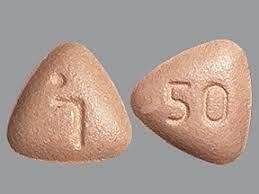Quviviq and Alcohol/Food Interactions
There is 1 alcohol/food/lifestyle interaction with Quviviq (daridorexant).
Daridorexant Food/Lifestyle
Moderate Food Interaction
Do not consume grapefruit, grapefruit juice, or any supplements that contain grapefruit extract during treatment with daridorexant unless directed otherwise by your doctor. Grapefruit juice can increase the blood levels of daridorexant. This may increase the risk of side effects such as somnolence, fatigue, abnormal sleep behaviors, worsening of depression or suicidal thoughts, or headache. You should avoid the use of alcohol while being treated with daridorexant. Alcohol can increase the nervous system side effects of daridorexant such as dizziness, drowsiness, and reduced coordination. Some people may also experience complex sleep behaviors such as sleepwalking, sleep driving, preparing and eating food or doing other activities while not fully awake that you may not remember the next morning. Talk to your doctor if you have any questions or concerns. It is important to tell your doctor about all other medications you use, including vitamins and herbs. Do not stop using any medications without first talking to your doctor.
Switch to professional interaction data
Quviviq drug interactions
There are 683 drug interactions with Quviviq (daridorexant).
Quviviq disease interactions
There are 5 disease interactions with Quviviq (daridorexant) which include:
- narcolepsy
- alcohol/drug abuse
- COPD/pulmonary impairment
- depression/suicidal ideation
- hepatic dysfunction
More about Quviviq (daridorexant)
- Quviviq consumer information
- Check interactions
- Compare alternatives
- Pricing & coupons
- Reviews (163)
- Drug images
- Side effects
- Dosage information
- During pregnancy
- FDA approval history
- Drug class: miscellaneous anxiolytics, sedatives and hypnotics
- Breastfeeding
- En español
Related treatment guides
Drug Interaction Classification
| Highly clinically significant. Avoid combinations; the risk of the interaction outweighs the benefit. | |
| Moderately clinically significant. Usually avoid combinations; use it only under special circumstances. | |
| Minimally clinically significant. Minimize risk; assess risk and consider an alternative drug, take steps to circumvent the interaction risk and/or institute a monitoring plan. | |
| No interaction information available. |
See also:
Further information
Always consult your healthcare provider to ensure the information displayed on this page applies to your personal circumstances.


